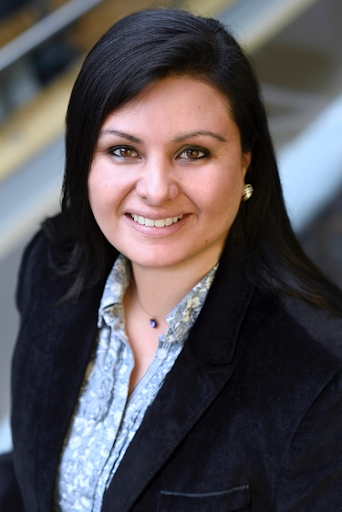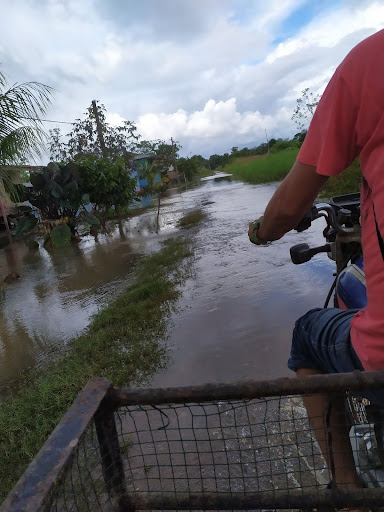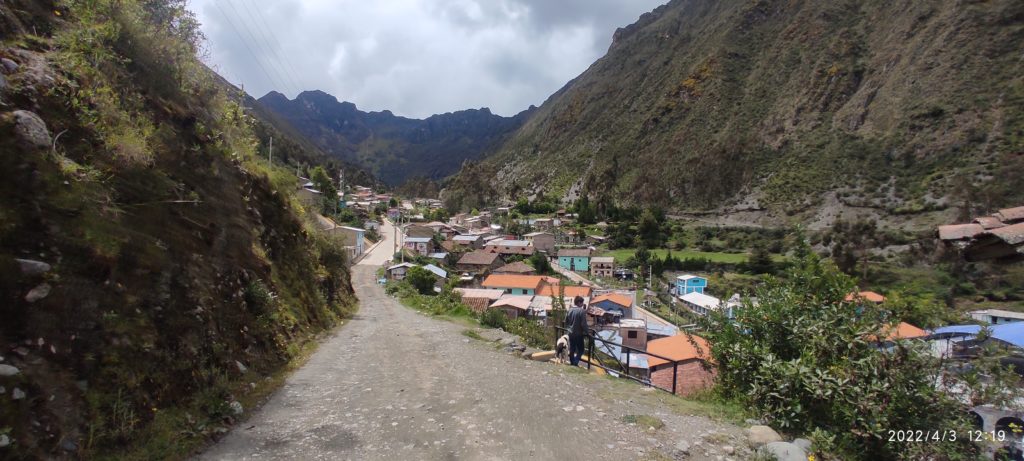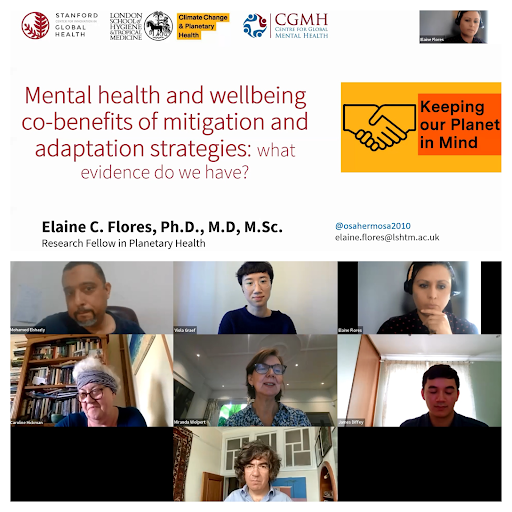Published: 08/03/2022
Elaine Flores, one of two Stanford/LSHTM inaugural planetary health postdoctoral fellows, researches and develops solutions to environmental mental health challenges faced by women and children in LMICs.

An experience responding to a devastating earthquake in the Pisco region of Peru opened Elaine Flores’ eyes to the long-lasting mental health consequences that a lack of proper support can have on a marginalized community in the wake of a natural disaster.
Flores, PhD, MD, MSc, has since dedicated her career to investigating the mental health impacts of natural disasters in low- and middle-income countries (LMICs), pursuing a PhD on this topic from the London School of Hygiene & Tropical Medicine (LSHTM).
Now, she is one of two inaugural Planetary Health Postdoctoral Fellows in a joint program hosted by Stanford University and LSHTM. Flores, based at LSHTM and now over a year into her fellowship, will be located at Stanford during the fall of 2023 while she continues her work researching and developing solutions to environmental mental health challenges faced by women and children in LMICs.
We spoke with Dr. Flores about the experiences that propelled her to this work, her efforts to elevate the voices and agency of women and marginalized communities in the response to climate change, and highlights of the fellowship to date.
How did your work as a doctor reveal the need for more mental health/emotional support around disasters, especially in LMICs?
A personal experience convinced me of the need to pursue research around mental health and environmental events. After I got my medical degree in my home country, Peru, I was working with Peruvian firefighting teams on the outskirts of Lima, when a major earthquake hit the region of Pisco. I joined one of the first responder teams that provided medical support after that event, and then I returned annually to the same area on medical missions.
I felt very impacted seeing that the people affected remained unsupported, and without access to reconstruction or rebuilding resources, long after the news stopped spotlighting the disaster.
I began doing mental health research for my master’s thesis. I assessed chronic post-traumatic stress disorder and the social capital of more than 1,040 survivors of the Pisco earthquake three years after the event. Since then, I have been interested in exploring the effects of disasters, environmental threats, and social determinants in mental health and other health topics.

How did your interest move from disasters to climate change specifically?

In 2016, Peru issued an environmental alert related to the El Niño phenomenon. I decided to use my PhD studies to examine the impact of the disaster and its longer-term consequences on the affected groups – and possible community-based resilience measures.
Now that I have been working more on climate related events, I’ve become even more aware that communities affected are not being offered the necessary support. They are not receiving the resources needed to help them overcome the emotional toll and distress related to the events, rebuild their lives, reconstruct their communities, restore their livelihoods, and increase their preparedness for future disasters.
Due to the climate crisis, there is an unrecognized, debilitating burden on mental health across LMICs. Events are expected to get worse, so supporting the groups at the highest risk will be of increasing importance.
Your work often focuses on the voices and perspectives of women in relation to climate disasters. What role should gender play in informing research and policy around climate change?
We already know that climate change is negatively impacting our health across numerous pathways, including increased exposures to heat, poor air quality, extreme weather events, altered vector-borne disease transmission, reduced water quality, and decreased food security. We also know that these things affect men and women differently, depending on local geographic and socioeconomic factors.
Climate change threatens to widen existing gender-based health disparities, especially in low- and middle-income countries. Integration of a gendered perspective into existing climate, development, and disaster risk reduction policy frameworks requires improvement in data acquisition, monitoring of gender-specific targets, coordination between sectors, and equitable stakeholder engagement.
Currently, research in the field of planetary health is developing fast and requires novel and equitable approaches that focus on building interdisciplinary knowledge for policy and real-world interventions that will reach high-quality, evidence-based solutions for the health of people and the planet. I believe that empowering women as educators, caregivers, agents of change, and researchers in their communities will improve the implementation of mitigation and adaptation strategies and will help inspire new ways of thinking for a resilient and sustainable planet.

What has been the most rewarding, exciting, or surprising aspect of the Stanford/LSHTM fellowship?
This fellowship has empowered me as a planetary health advocate. It has allowed me to continue perfecting my research, teaching, and presenting skills while also strengthening my collaborative networks and creating new ones. I’ve been able to meet and work with leading world experts and advocates in the field that I am passionate about. I feel so grateful for having learned so much.
But perhaps the most rewarding aspect of the fellowship has been the ability to amplify the voices of the people living in Global South countries, including women living in high-risk areas, my academic and community collaborators, and my students. I plan to continue working closely with all of these groups, who I believe should be participating with an equal voice and co-leading the path toward climate solutions and a sustainable future.
What outcomes of the fellowship are you most excited about?
Together with my colleagues (Alessandro Massazza, Laura Brown, and Viola Graef), I co-organized a webinar series Keeping our Planet in Mind that focuses on the climate change and mental health crises. It was co-hosted by the Centre on Climate Change & Planetary Health and the Centre for Global Mental Health at LSHTM. The series aimed to promote dialogue within the planetary health community around the increasing evidence on the links between mental health and climate change.
With the Land Body Ecologies Hub and The Wellcome Trust, we also co-organized a participatory hybrid workshop, The Intersections of Climate and Mental Health. The main objective of this hybrid workshop, held in London, was to engage actors from different sectors and discuss next steps while sparking new ideas and collaborations.

Aside from these events, I have also done a number of research projects with different collaborators. To name a few: I’ve helped conduct a systematic review to assess the evidence of mitigation and adaptation responses to climate change on the psychosocial and wellbeing outcomes across populations in low- and middle-income countries, in partnership with colleagues at LSHTM and University College London; I have assessed mental health outcomes among the sugar cane industry farmers in Huaraz, Peru, exploring the role of work conditions and environmental factors with my colleagues of PsycoPeru and with the support of the Peruvian research body Fondecyt; and I’ve helped complete a scoping review to identify gaps in health vulnerabilities, exposures, and impacts of climate change on human health and well-being in South American countries as part of the Lancet Countdown South America working group.
How do you plan to continue this work forward once you are done with the fellowship?
This fellowship has been an invaluable working and learning experience for me, but I am acutely aware that the magnitude of the problem we have transcends any of my personal academic and professional career plans. My main ambition now is to be able collaboratively to engage, co-design, and jointly implement projects with the communities that are at the forefront of the climate crises and have the least resources. We need to empower and bring forward the voices of these communities, and especially, those of women leaders in their fields, highlighting their lived experience and ancestral knowledge, the cultural values of land defenders, Indigenous peoples, and those who are already leading the adaptation of their communities and neighborhoods.